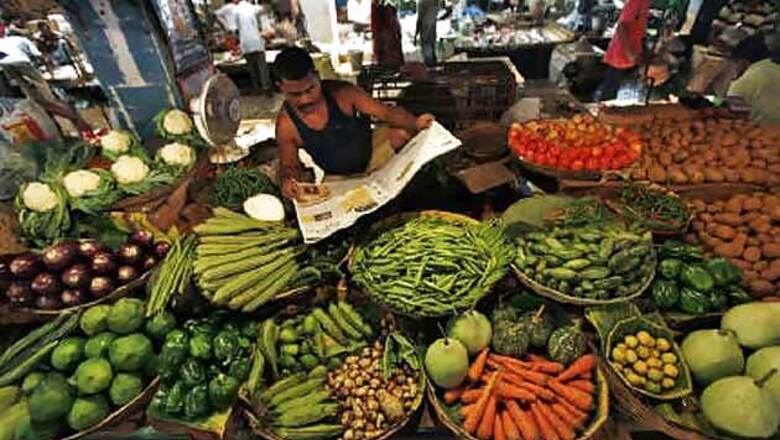
views
New Delhi: Inflation is back to haunt the common man and without much delay, the new Indian government has got into a firefighting mode. Union Finance Minister Arun Jaitley on Tuesday laid down a slew of measures to tame food inflation.
The Centre has imposed a minimum export price of $ 300 per tonne on onions to curb their exports. The government has also asked the states to delist fruits and vegetables from the APMC act. It's the second step which is contentious. Not because anyone doubts its need or the logic behind the move but because it hurts the interests of a critical stakeholder in the food chain - the wholesaler.
Delisting fruits and vegetables from the APMC act will allow farmers to sell products directly in the open market against going through Mandis. "We are happy that the middleman has been done away with," Manoj Adasule, a farmer from Maharashtra told CNN-IBN. He added, "They (middlemen) take away all our profits."
CNN-IBN met many wholesalers in Delhi's Azadpur Vegetables market - one of the biggest fruit and vegetables markets in Asia - who are unconvinced of the move. While their response was on the expected lines as delisting would hit their business hard, but traders did raise some genuine concerns.
"This may give immediate gains but what about stocking produce for a later stage? A farmer may be able to sell products now but where will he stock his produce for it to be sold during off-season," warned Arun Kumar, an onion trader. Another trader Harish warned, "Most of our deals are done through credit. Can a farmer afford to sell his produce on credit?"
Food Inflation dominated Modi government's agenda even on Wednesday with the Prime Minister holding meetings with food minister Ram Vilas Paswan and Agriculture Minister Radha Mohan. In Delhi, taking a cue from the Centre, Lieutenant Governor Najeeb Jung ordered stocks at SAFAL outlets to be doubled also pressing in mobile vans to sell the vegetables.
While the government needs to be commended for alacrity in response but the common man is running out of patience and getting angry. 'During elections, things became cheaper, now prices are up again,' 'what was the need for the government to say that a below average monsoon may impact prices? Would it not encourage hoarding?' 'Modi had promised to reduce prices? How is NDA government different from UPA?' some of the voices we heard when CNN-IBN hit the roads to get a sense of how intense the problems are.
Price rise is an explosive political issue. In 1998, the BJP government was voted out of power in Delhi when it was unable to cool down onion prices. Inflation also played an important role in ensuring UPA government's exit in the 2014 general elections. Sensing an opportunity to gain back some lost ground, the Congress has launched an all-out attack with its various spokespersons reminding people again and again, 'are these the good days that you were promised?'
With Iraq crisis staring from outside, inflation on the increasing trend and new government's maiden budget about to roll, Prime Minister Narendra Modi's governance and leadership skills are now truly put to the test. Will he succeed?














Comments
0 comment